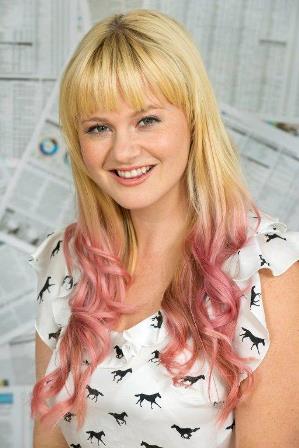Gold Coast Film Festival Director Lucy Fisher.
This year’s Gold Coast Film Festival screened 38 films from 15 countries, with over 14,000 guests in attendance across the festival.
The festival welcomes submissions from around Australia – this year it hosted local indies such as Girl Asleep, Drama, Crushed and Broke – as well as international.
Festival director Lucy Fisher assumed the role in June 2015, after earlier serving as a consultant to the festival.
“We’re growing fairly quickly,” says Fisher. “In terms of the Queensland landscape, we’re in a really strong position as an international film festival.”
Originally Queensland-only, the fest has opened up, looking outside the state for films in a bid “to have that element of discovery rather than just being reliant on distribution to find our films,” Fisher says.
Despite the expansion, the festival is still regularly speaking to Queensland productions about holding Queensland or Australian premieres at the festival in 2017.
“It makes sense; you’ve got the crew based here and it’s a good opportunity to showcase what Queensland filmmakers are doing.”
Submissions are now open for next year’s festival – the 15th – running from April 19-30, as well as for SIPFest.
SIPFest, or Shorts in Paradise Festival, will be held on Surfers Paradise Beach on consecutive nights next year, April 23 and 24, and is a partnership between the festival and Surfers Paradise Alliance, the strip’s main events body.
“We did that for the first time on the beach this year and we had over 2,000 people attend,” says Fisher. “We had filmmakers from all across Australia and it was pretty spectacular.”
SIPFest’s opening night will see 12 Aussie shorts screen under the stars, with $8000 in cash prizes up for grabs. The following evening will showcase the best films from London as part of a new partnership with the London Short Film Festival.
2017’s jury includes Thomas Grimshaw, the international programmer for the LSFF, as well as Sophie Mathisen, the president of WIFT NSW, Nadine Bates, creative director at Queensland’s Like A Photon Creative, and Kasie Morre, Screen Queensland’s VP – Development and Production.
Grimshaw’s involvement was secured by Fisher at a film festival training course in Croatia on ‘Developing Your Film Festival’, run out of London’s Independent Cinema Office.
“I was fortunate enough to be among 25 either film festival directors or programmers or key development execs, and I met one of the event producers for London Short Film Festival at that event and we developed a little partnership going forward.”
At this year’s festival, says Fisher, each film was rated according to the Bechdel Test for the first time, and attention was paid to gender balance among guests and panelists.
“We’ll continue that for next year. We’re not a feminist film festival, we’re not a women’s film festival, we’re a mainstream film festival, but it’s [about] doing those small things you can in your own sphere of influence.”
The 2017 edition of the festival will also see the return of the Chauvel Award. Originally part of the Brisbane International Film Festival, the Chauvel relocated to the Gold Coast in 2016 and was awarded to Claudia Karvan.
The Chauvel committee includes Jan Chapman, Alan Finney, David Stratton, SQ CEO Tracey Vieira, Melanie Coombs and Bruce Molloy.
Says Fisher: “Reviving the Chauvel was a really big milestone for us, and obviously getting Claudia [Karvan]. We’re working with the committee on the selection for next year at the moment.”
“I think the Gold Coast Film Festival is the little underdog and we’re starting to make some progress.”
Fisher, who describes the GCFF as “the little underdog”, nominates the Bath Film Festival as a model: “they discover some really good films but with a commercial eye. And for us that’s really important; showcasing new stuff but with an eye to what will work for our audience.”
“The Gold Coast is a different audience to Melbourne and Sydney. There’s a reason that major distributors, if they do limited runs for films, don’t come to the Gold Coast. The audience is here but the numbers aren’t as big as in Sydney and Melbourne and even Brisbane to some extent.”
“We program a little bit of everything, but not too far out there, because our audiences just aren’t ready to be taken too far out there at the moment.”
Entries for the 2017 GCFF and SIPFest close February 18. Short film entries must be under ten minutes and produced in the last two years.
To enter, visit https://filmfreeway.com/festival/GoldCoastFilmFestival.
For more information about SIPFest and the Gold Coast Film Festival visit www.gcfilmfestival.com.


